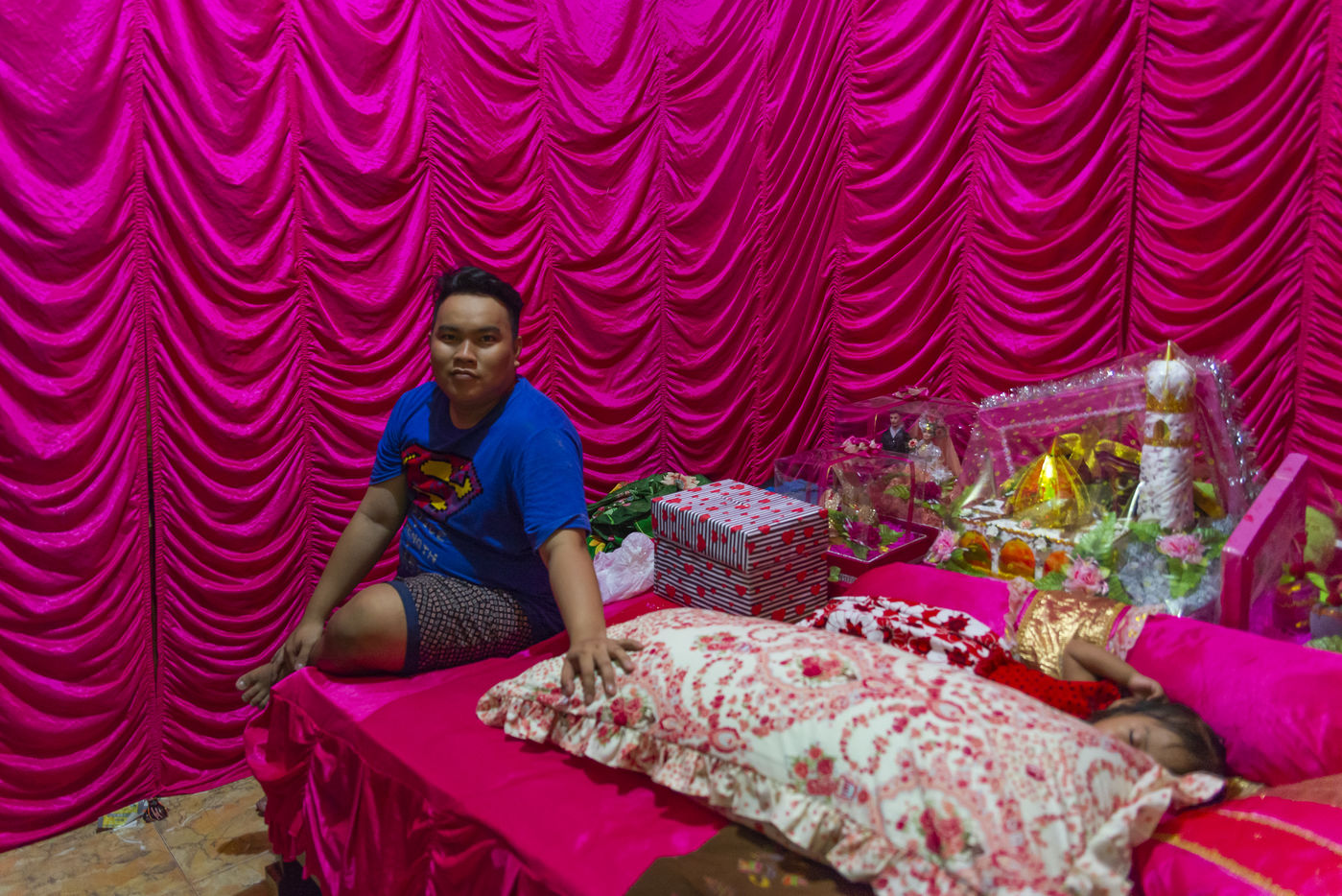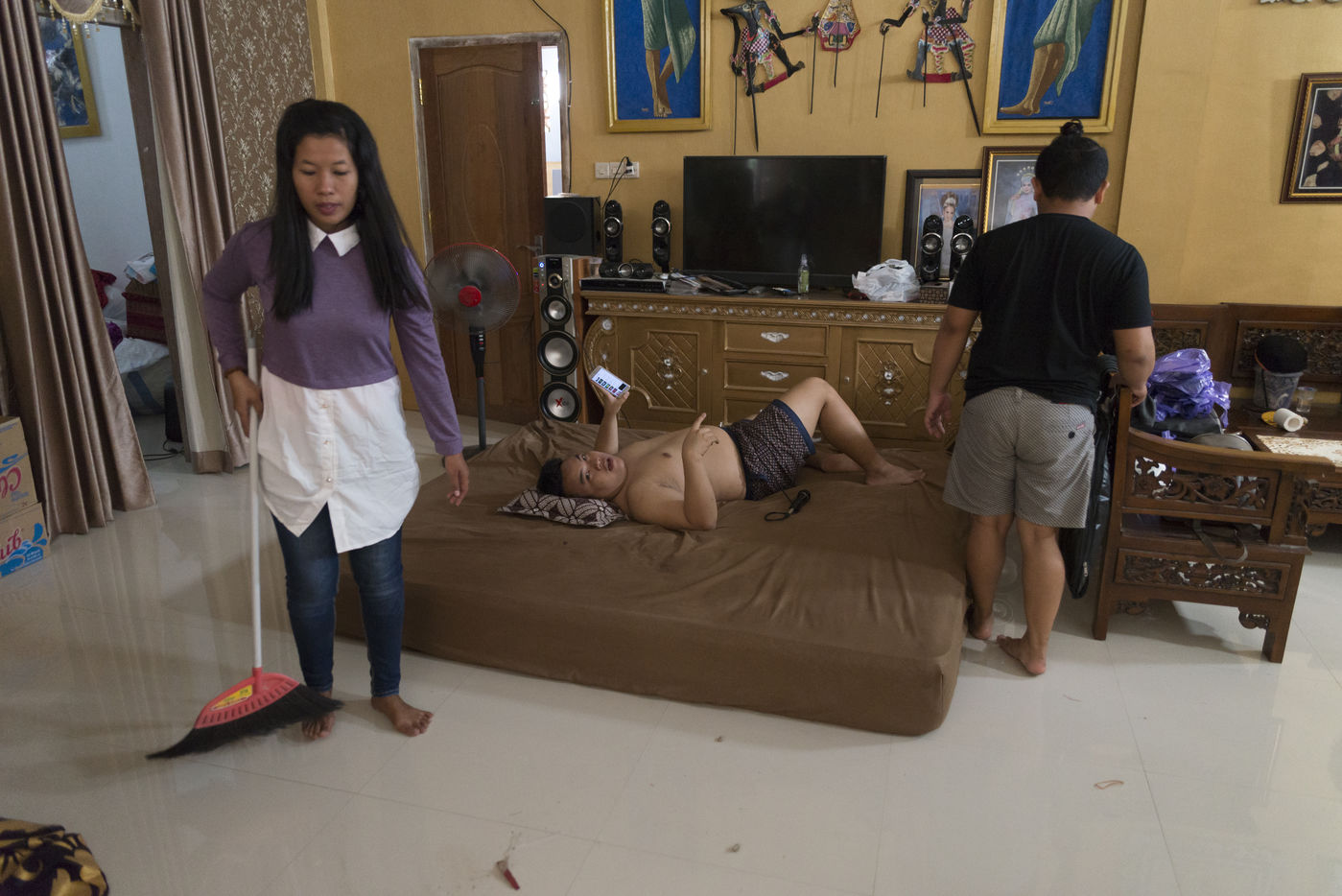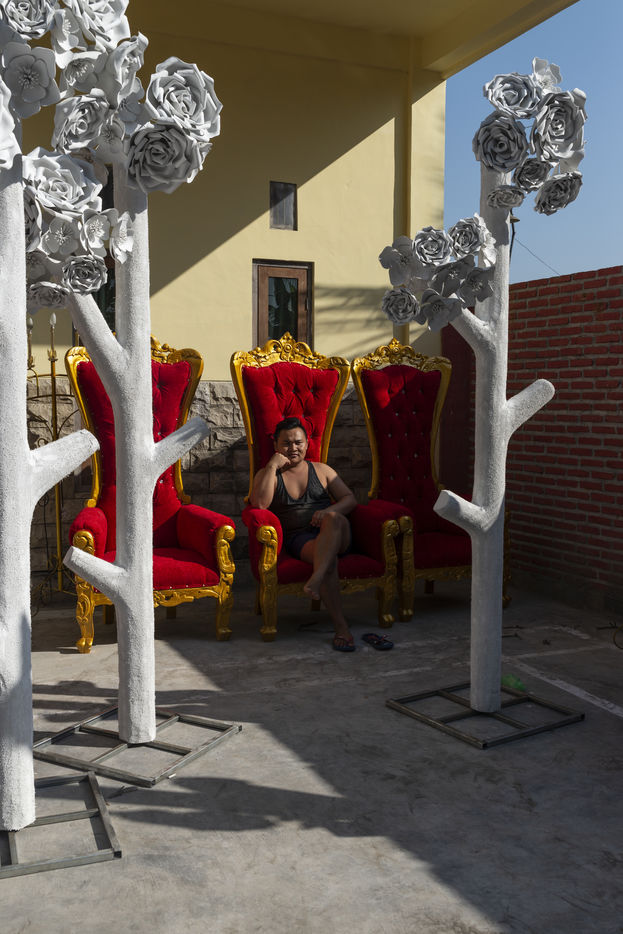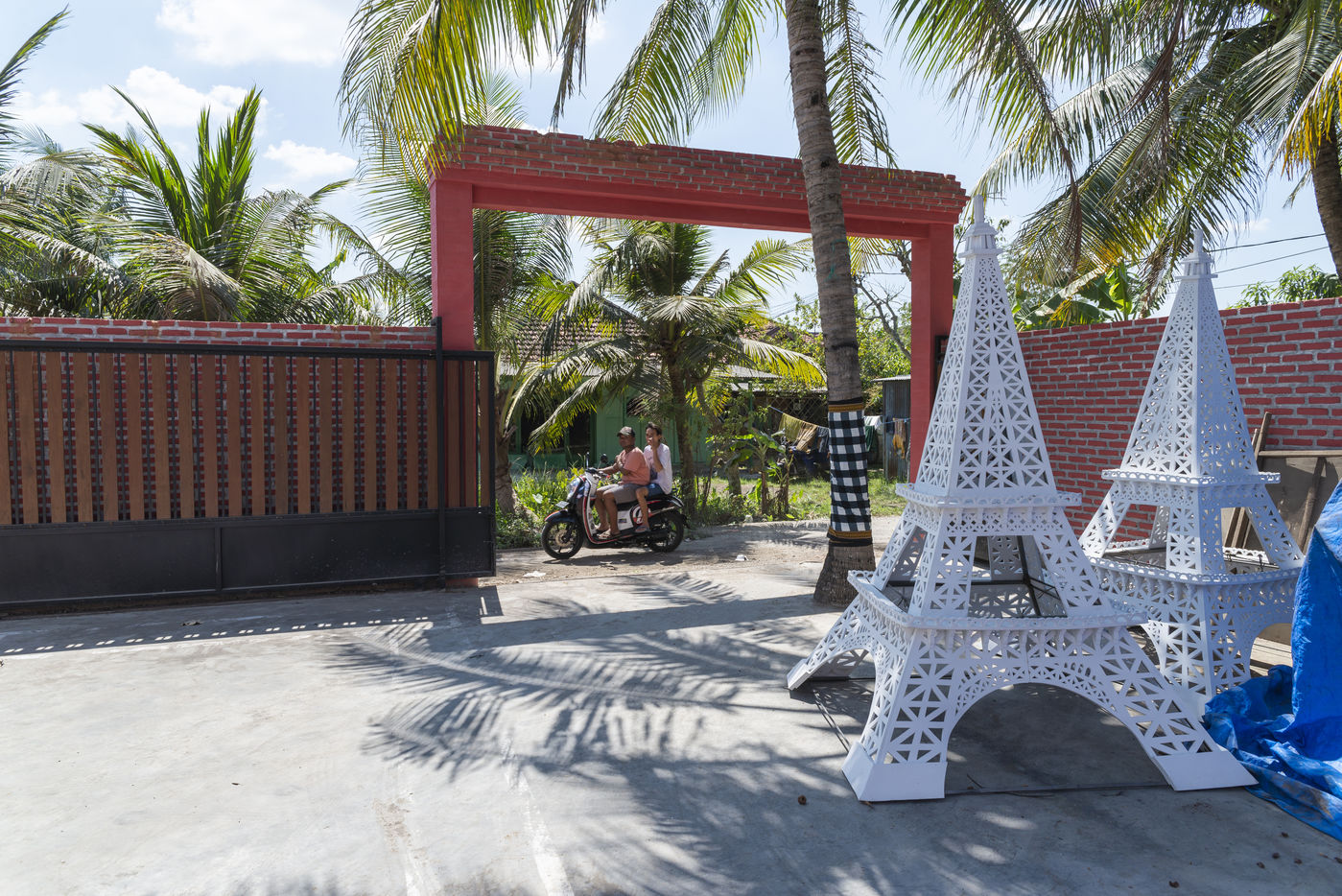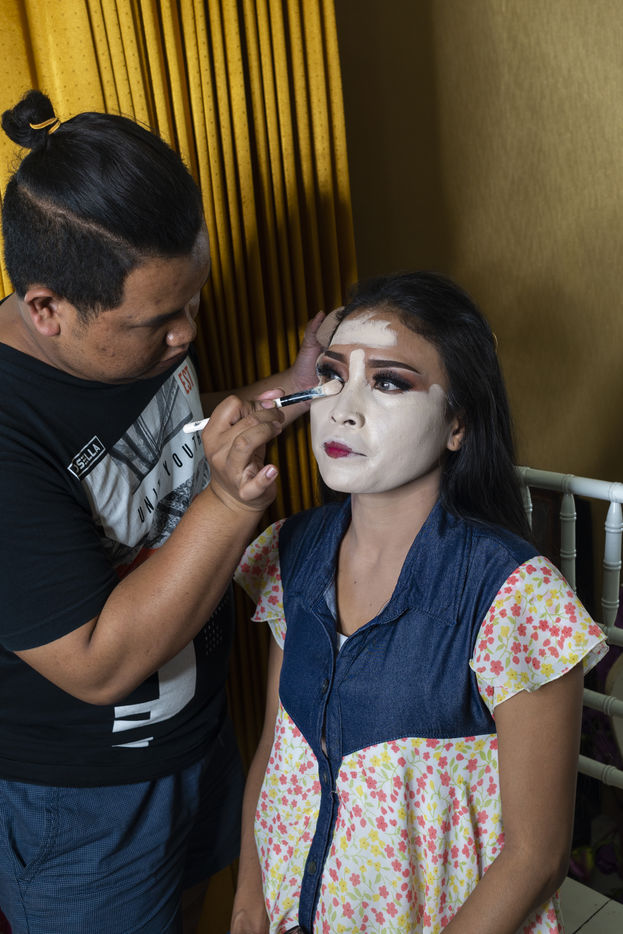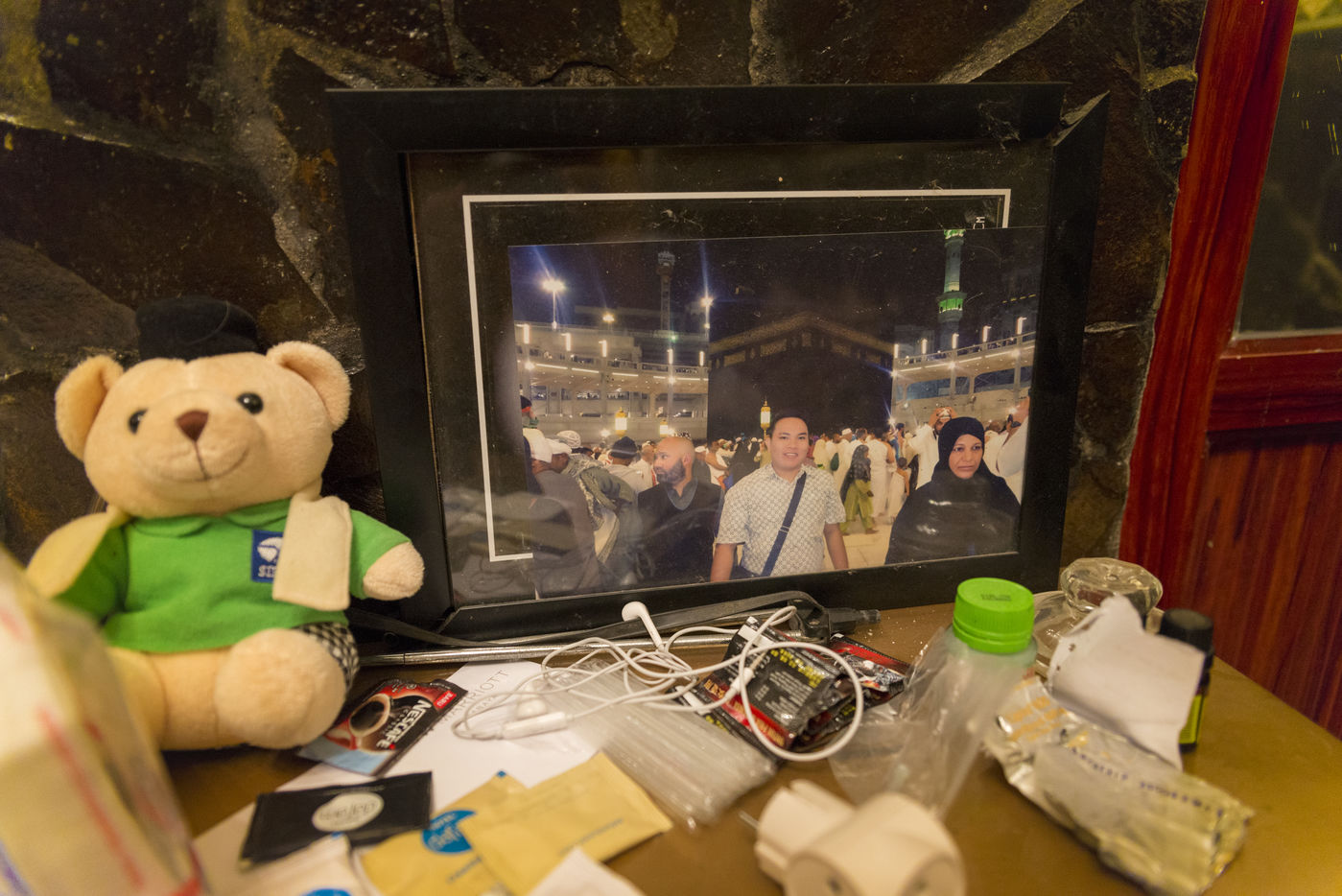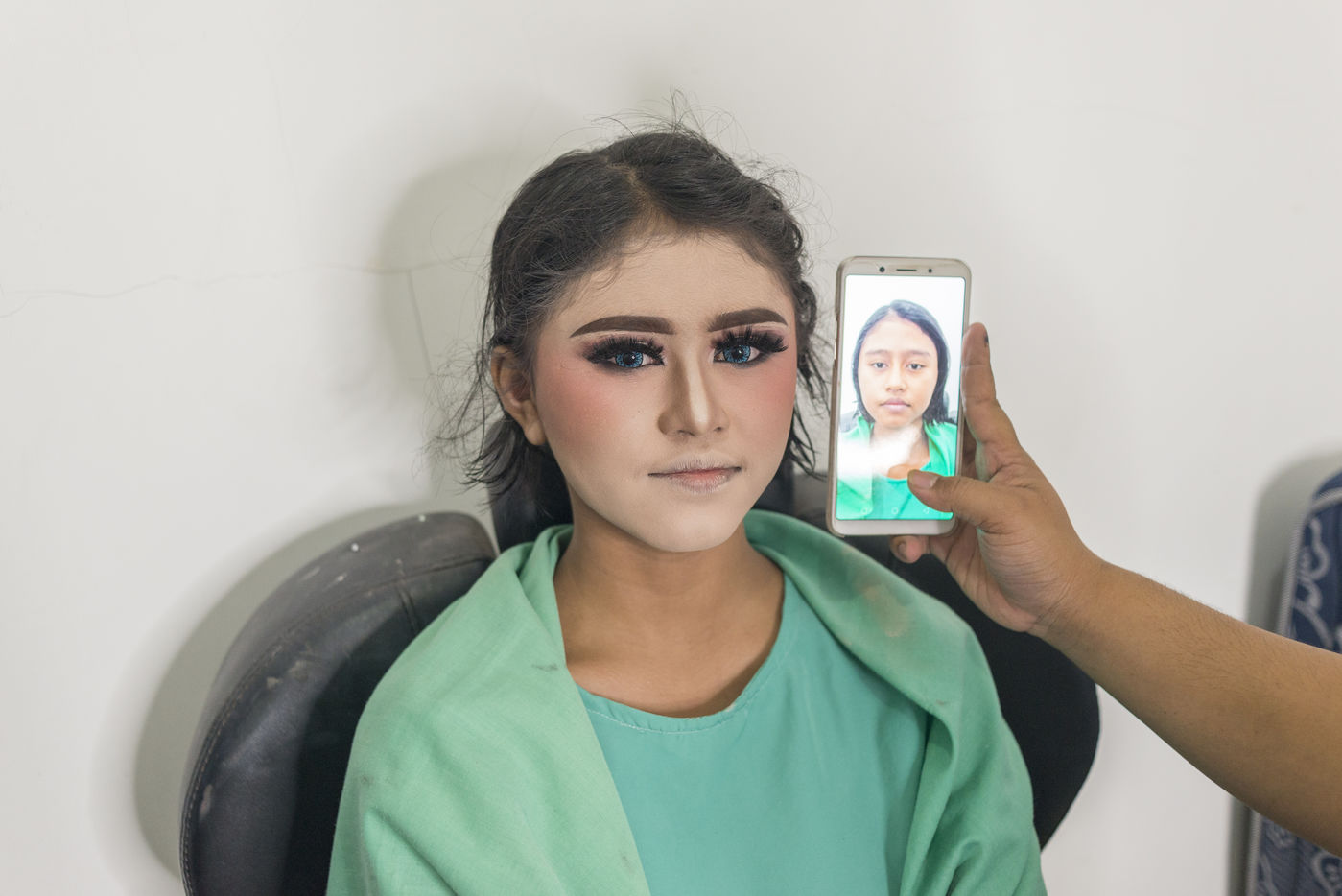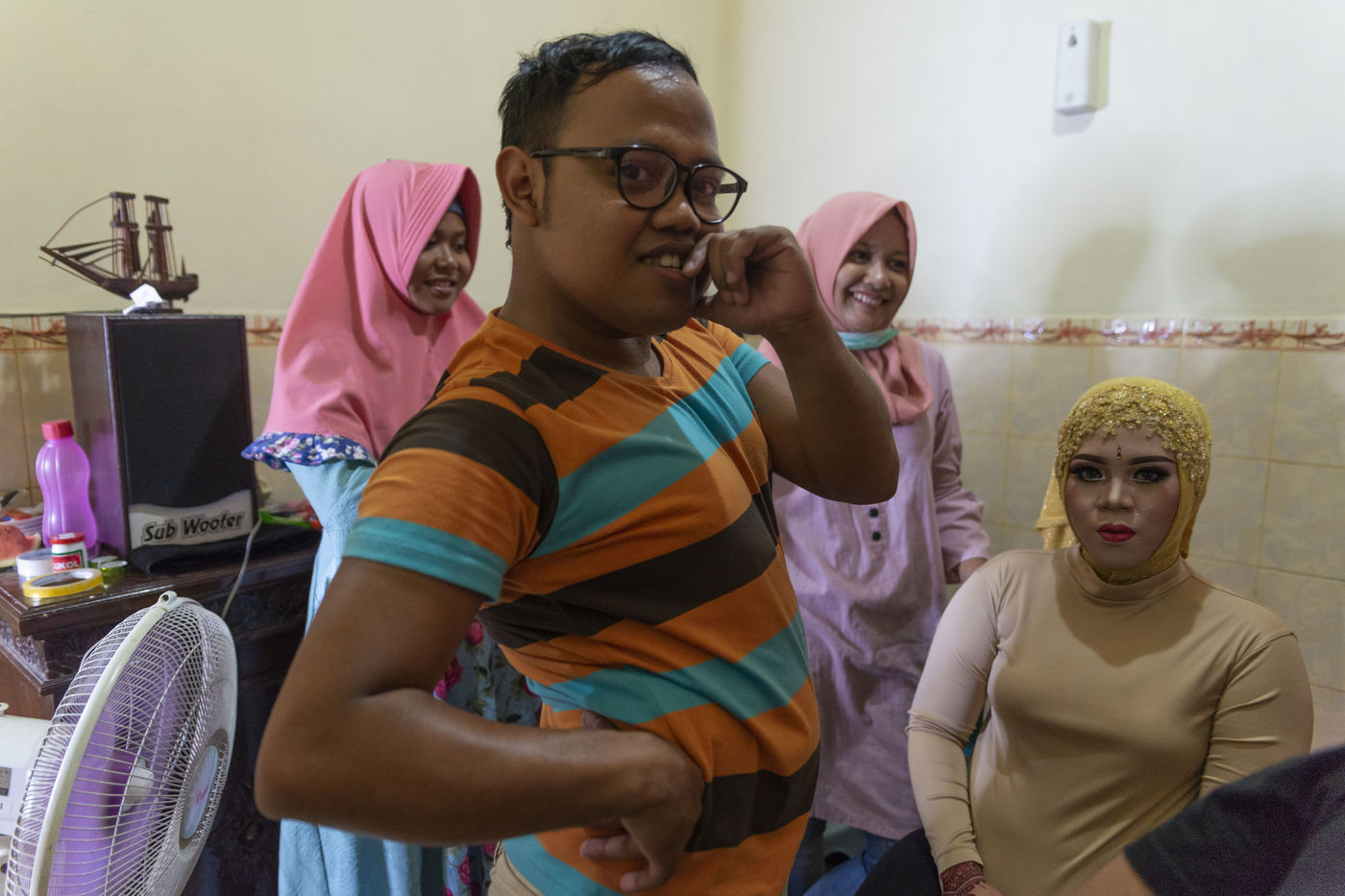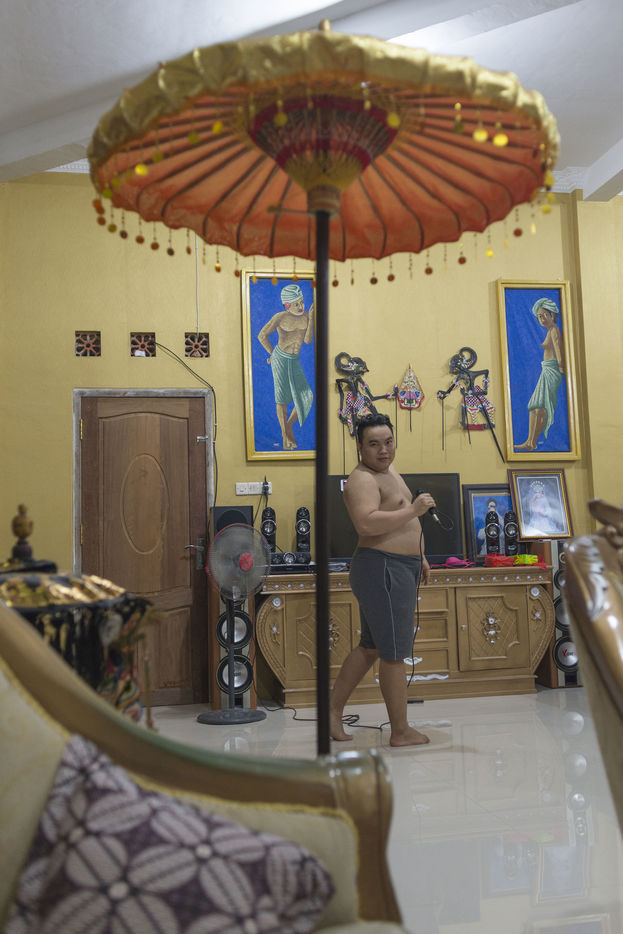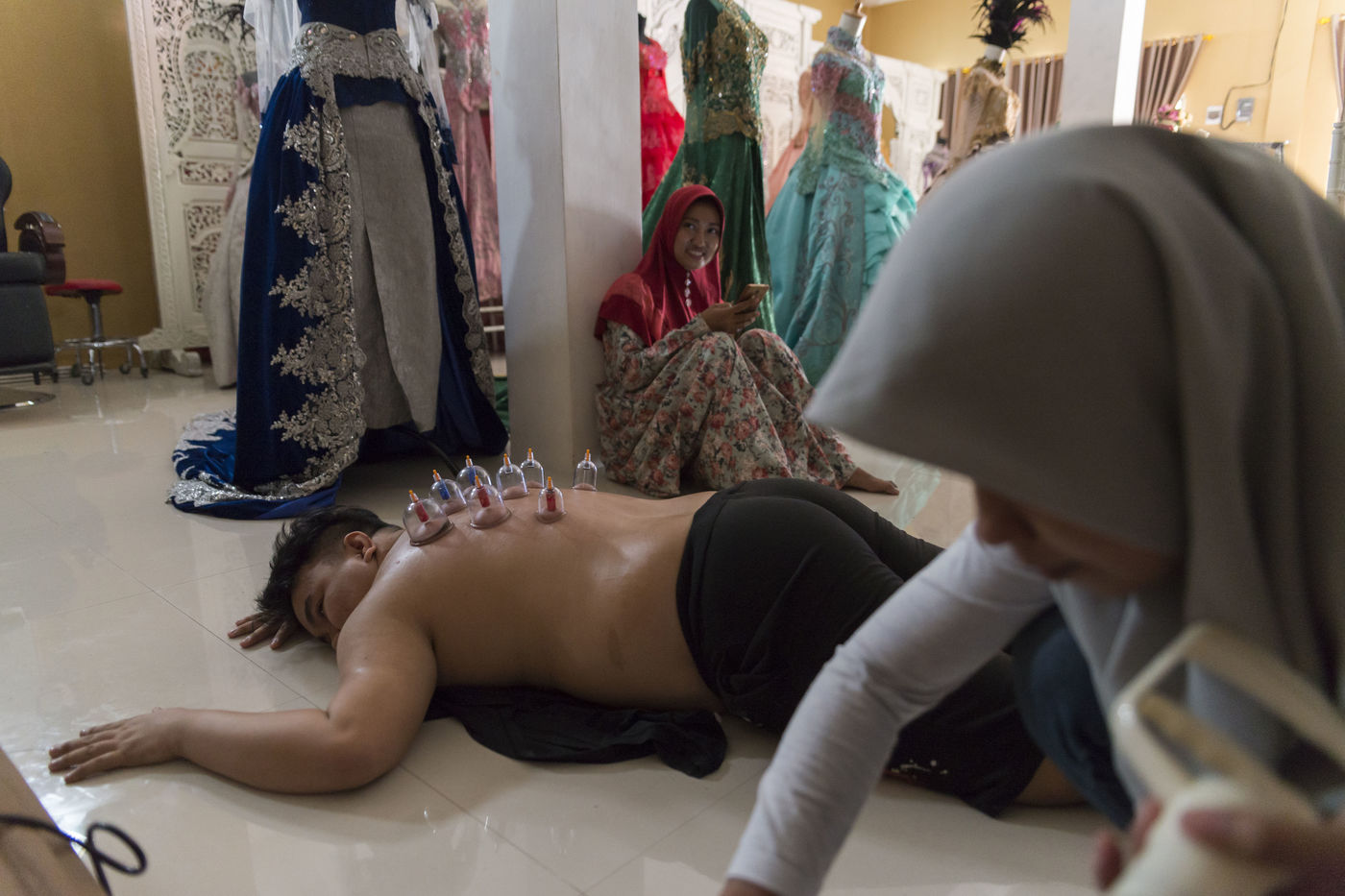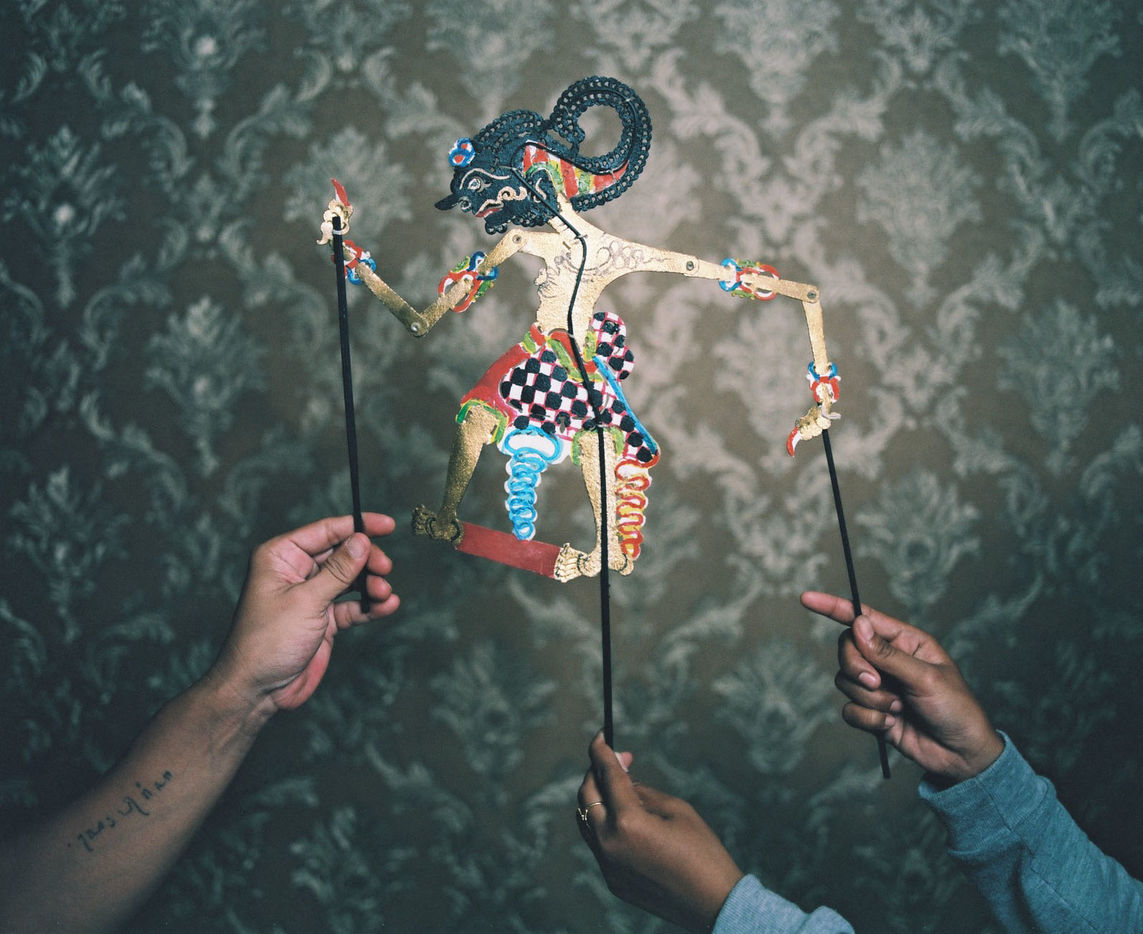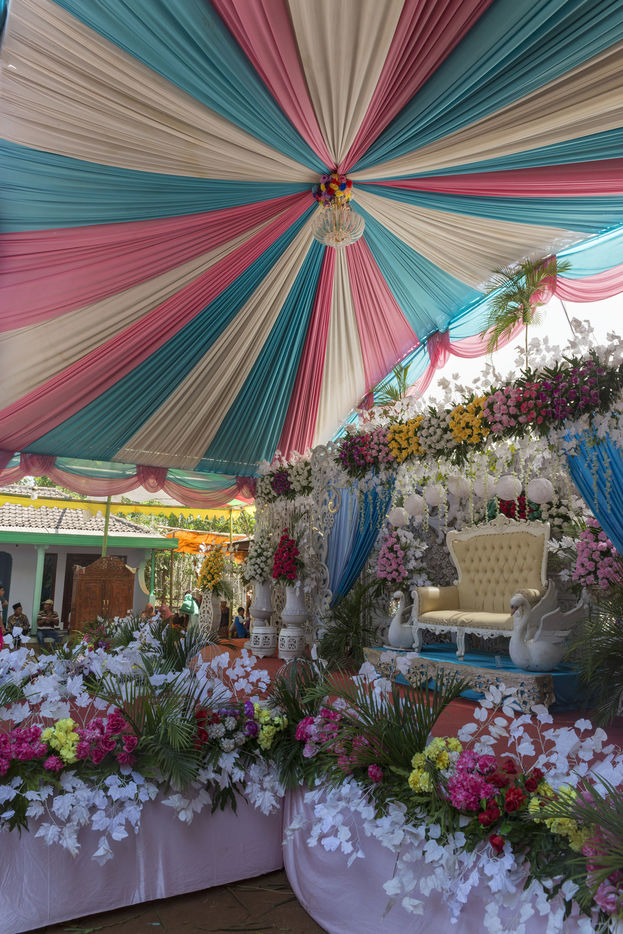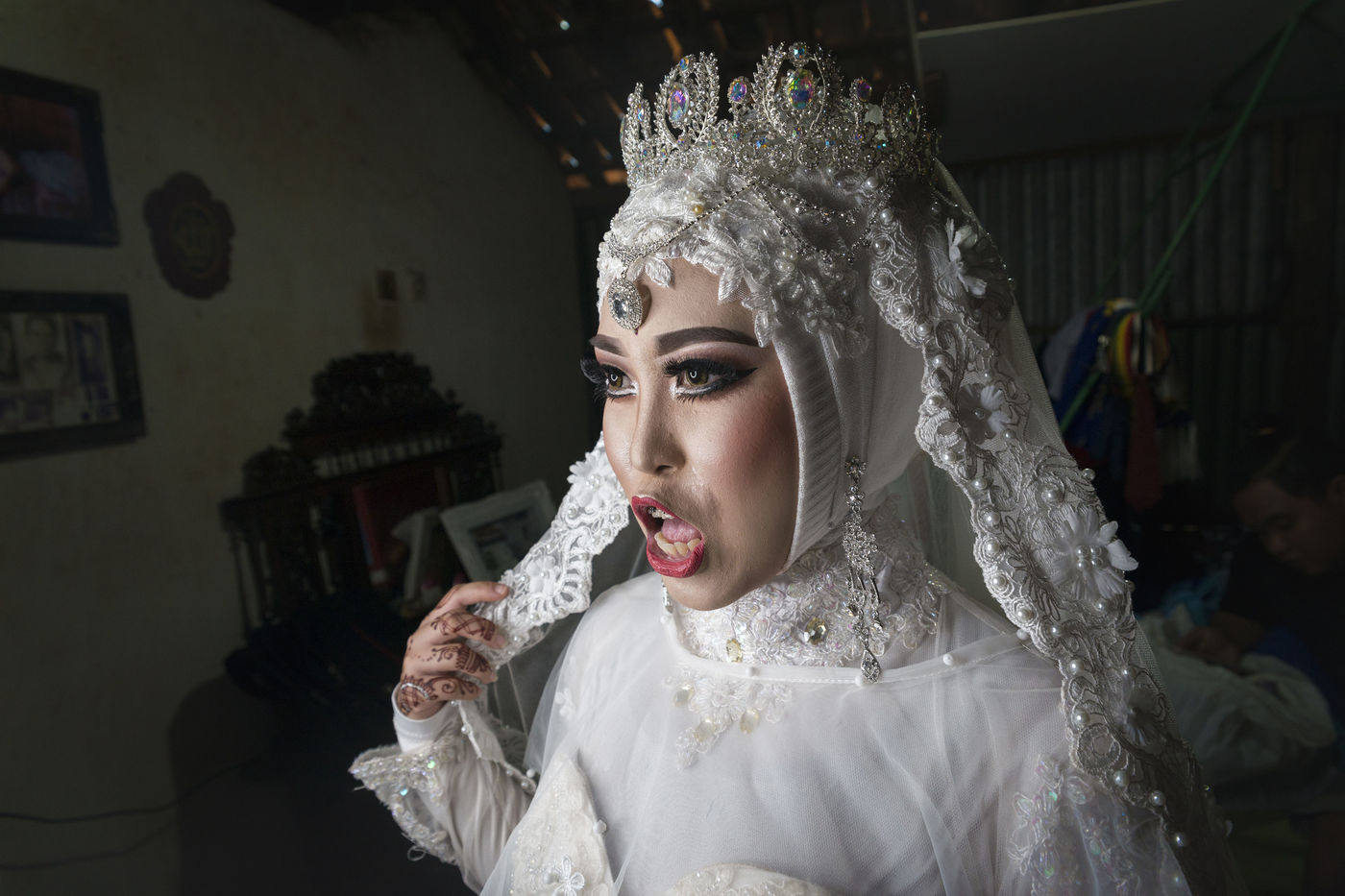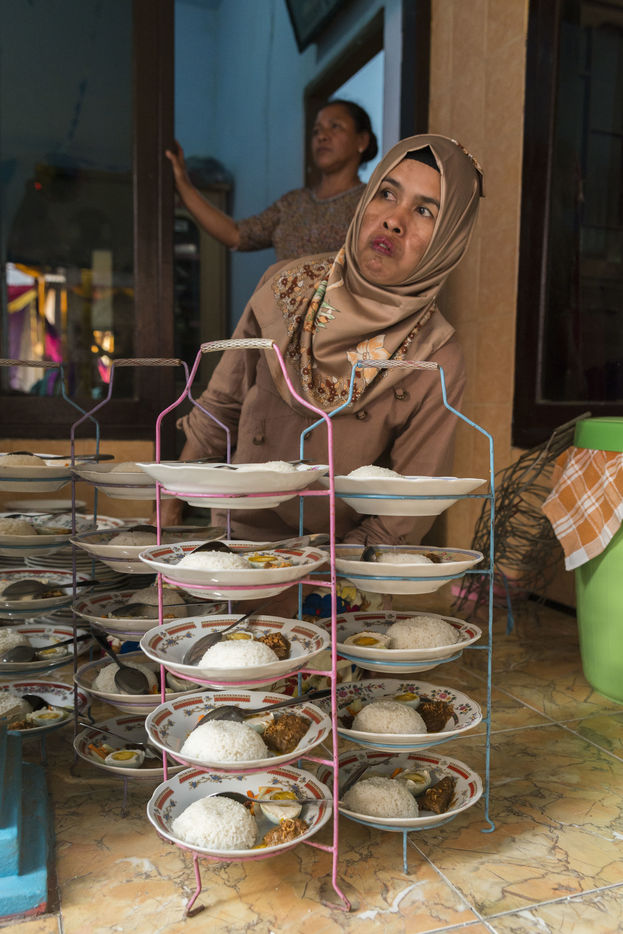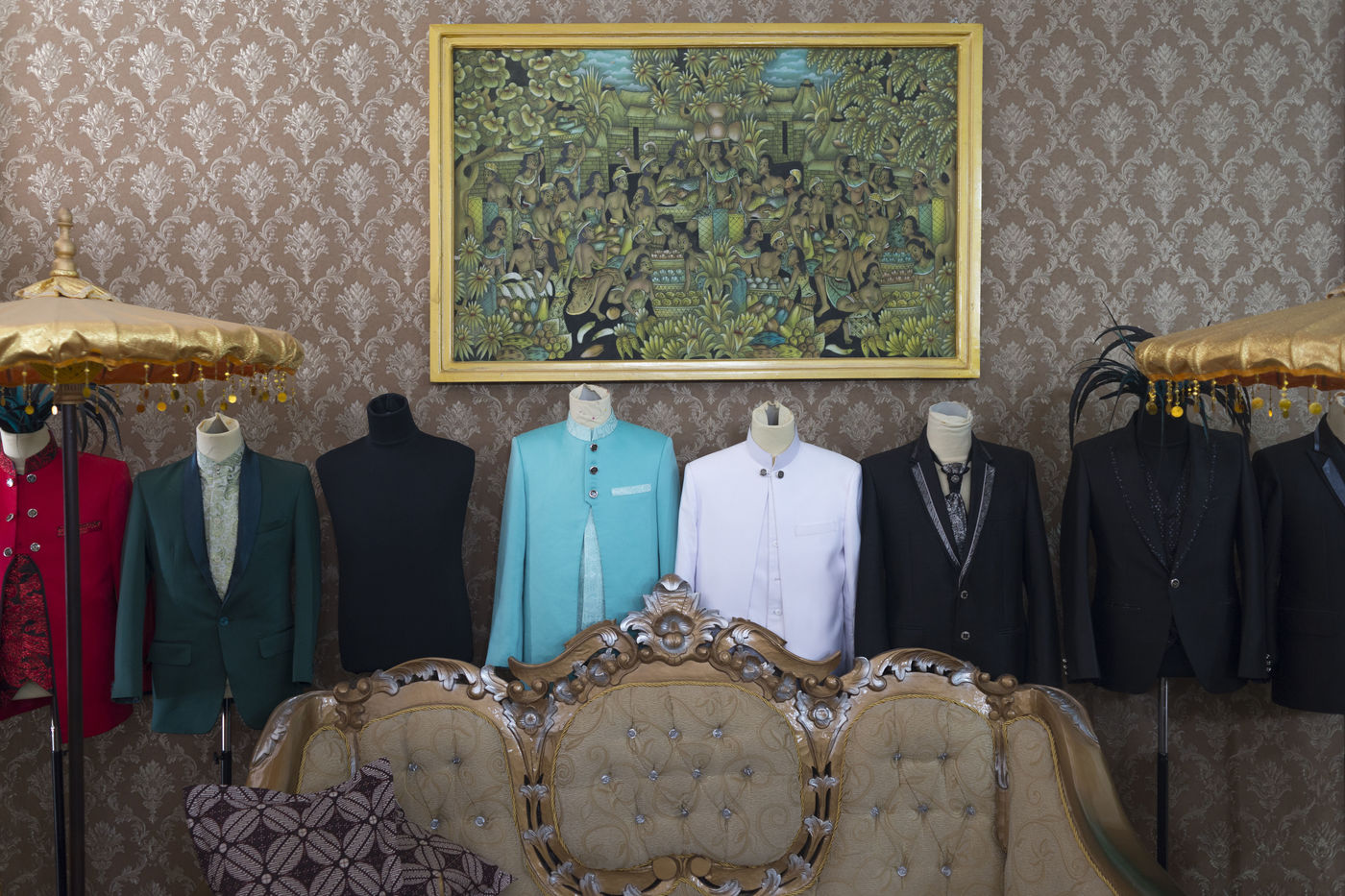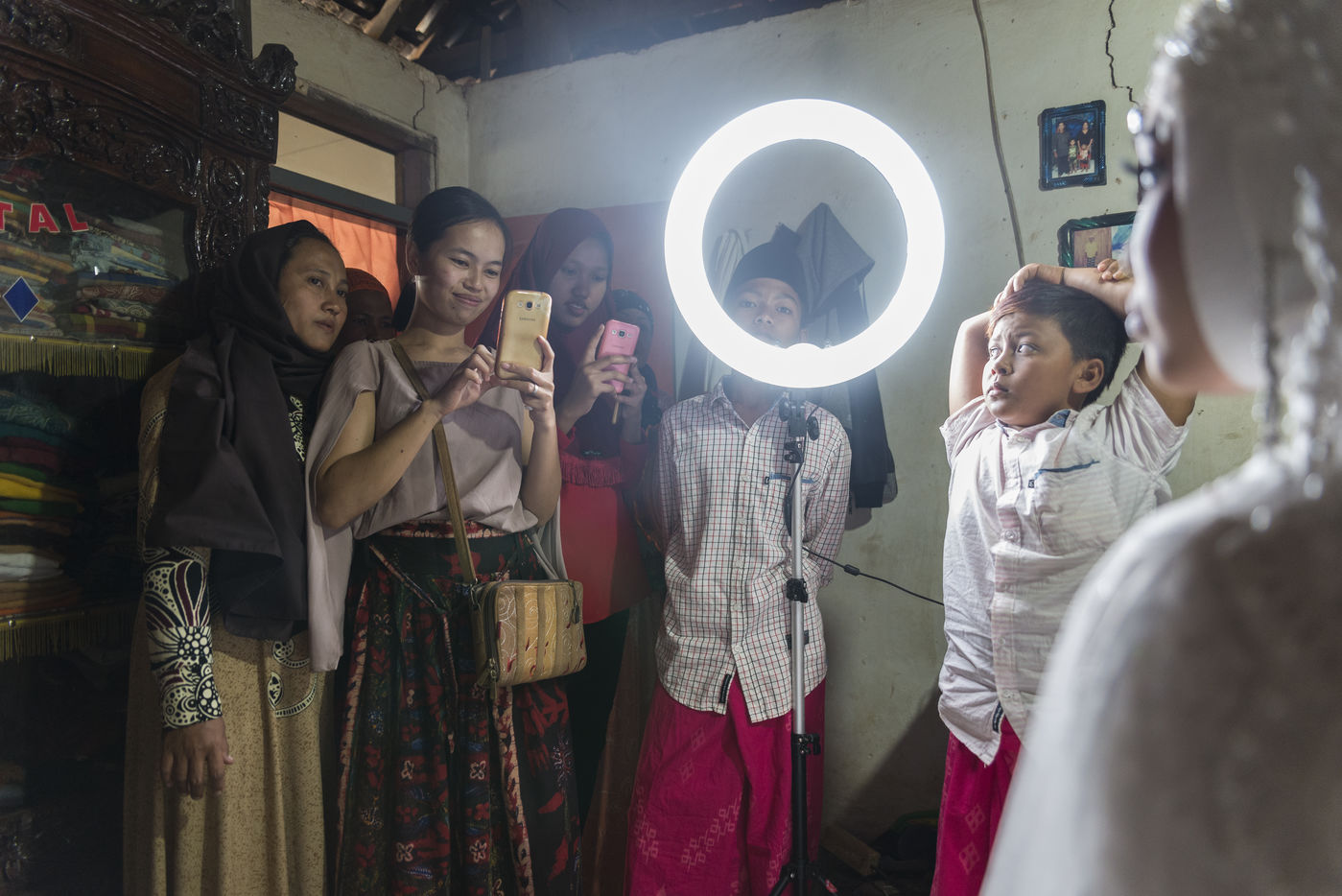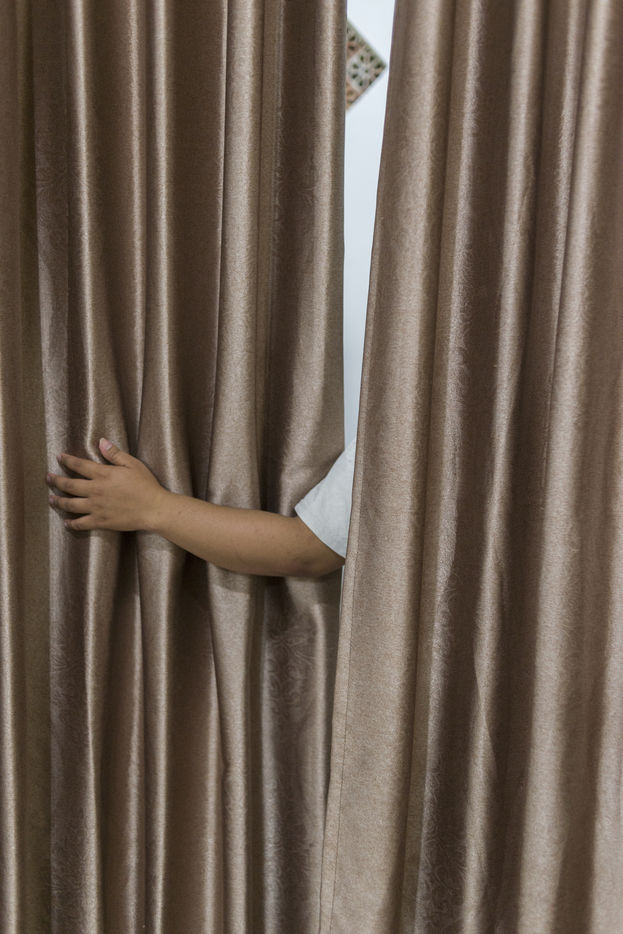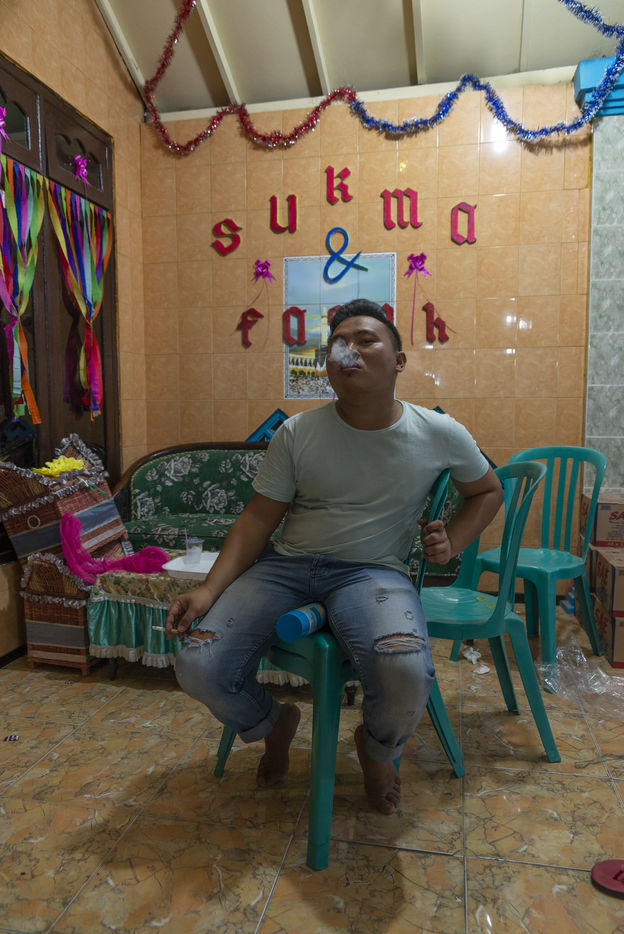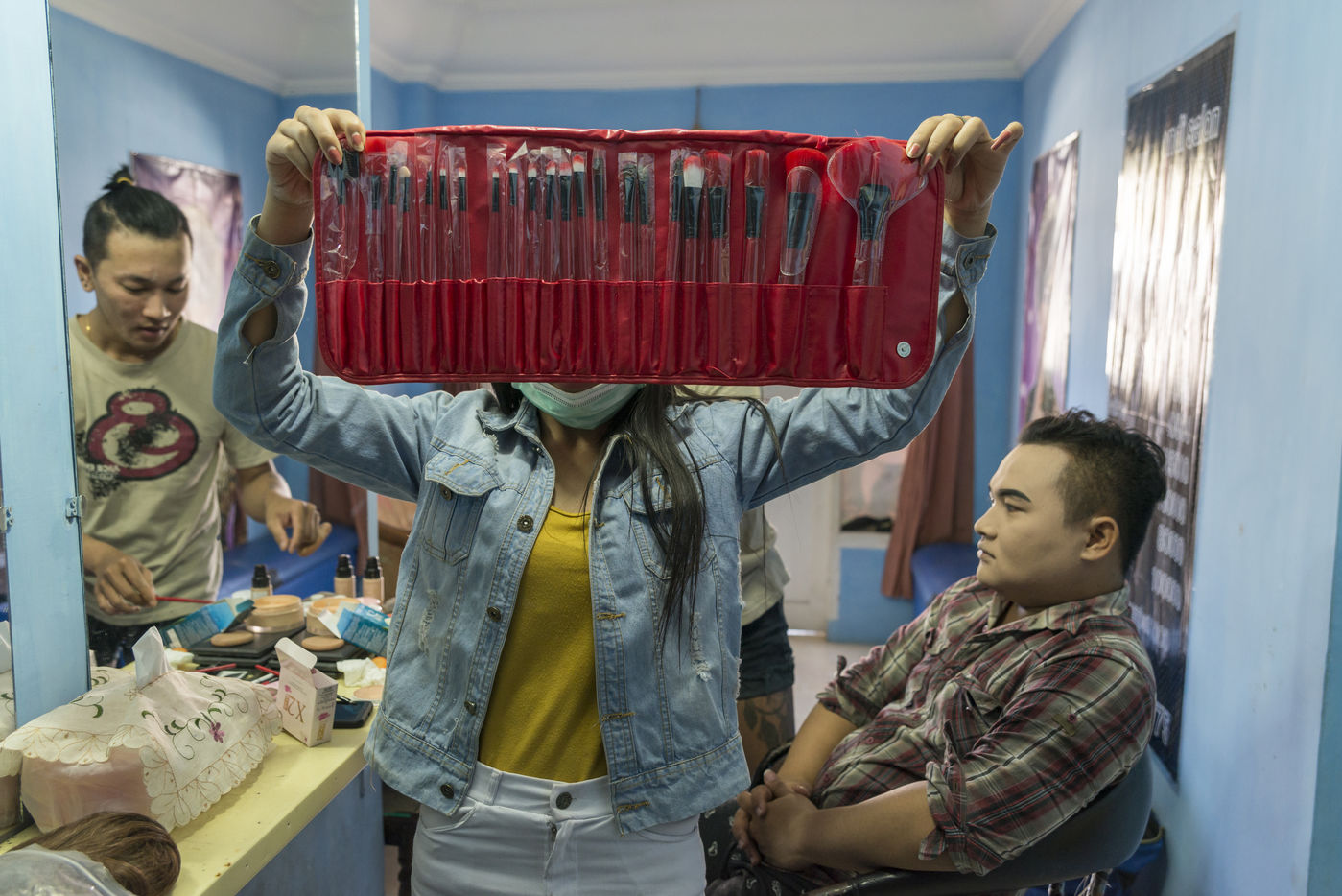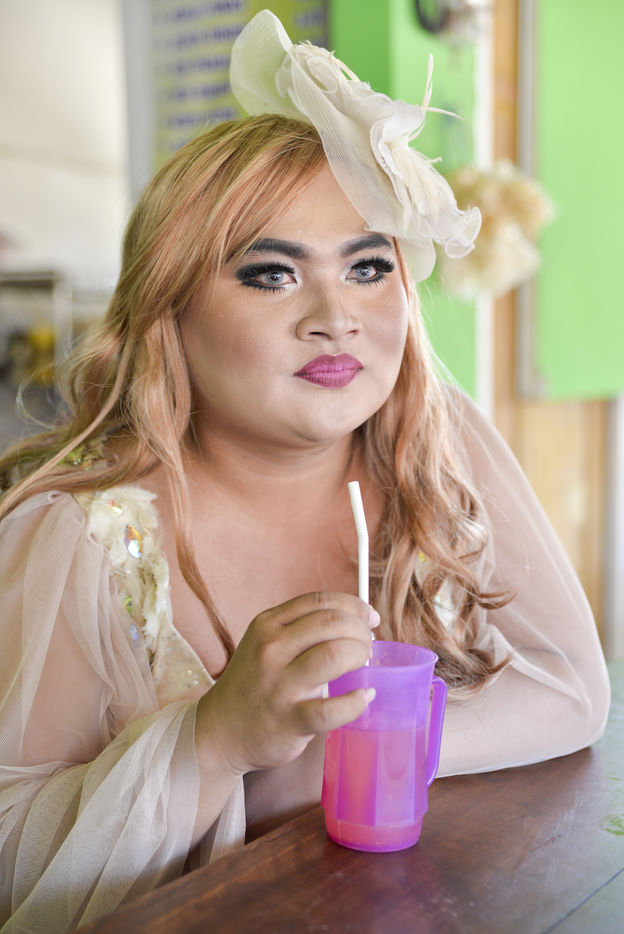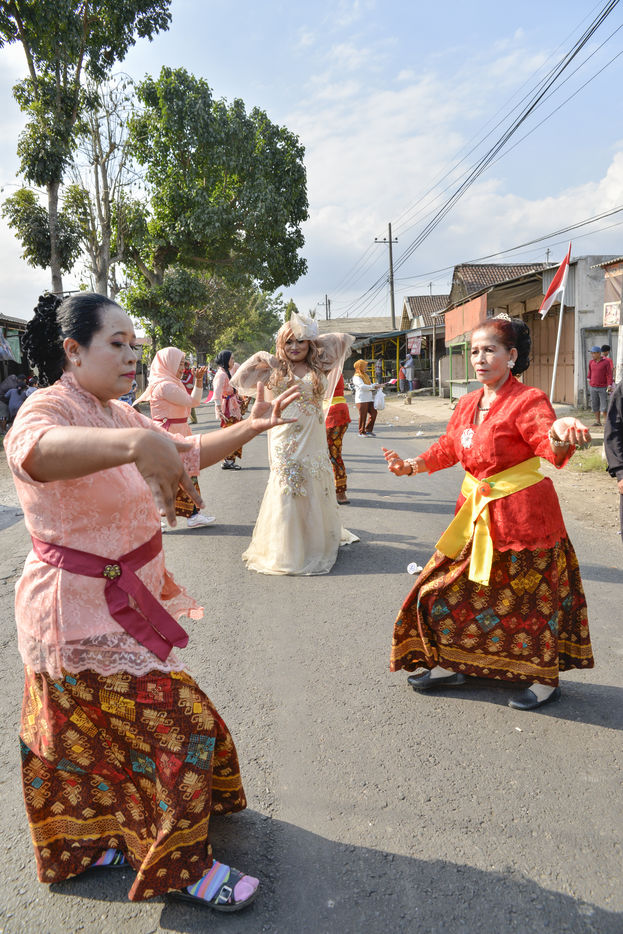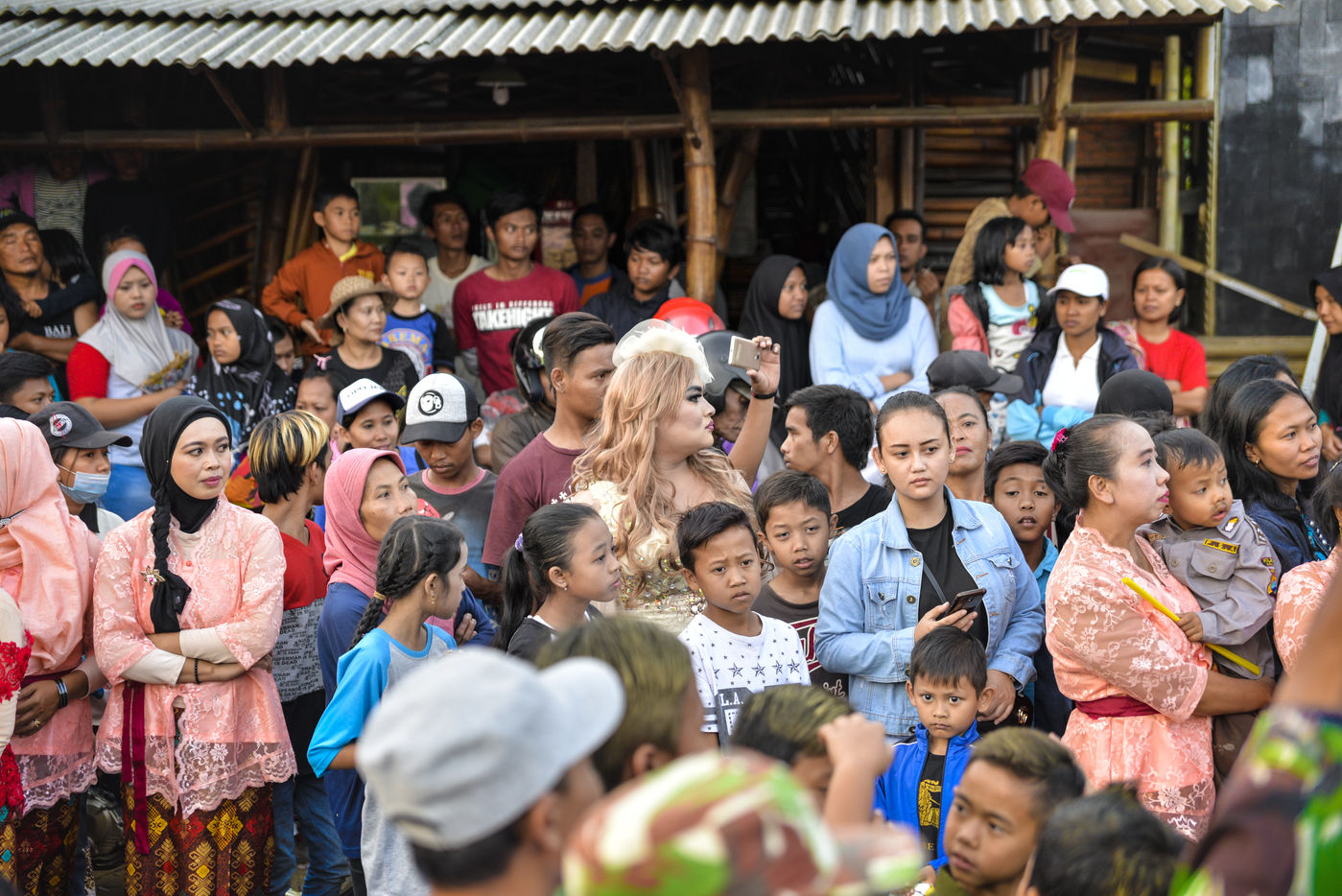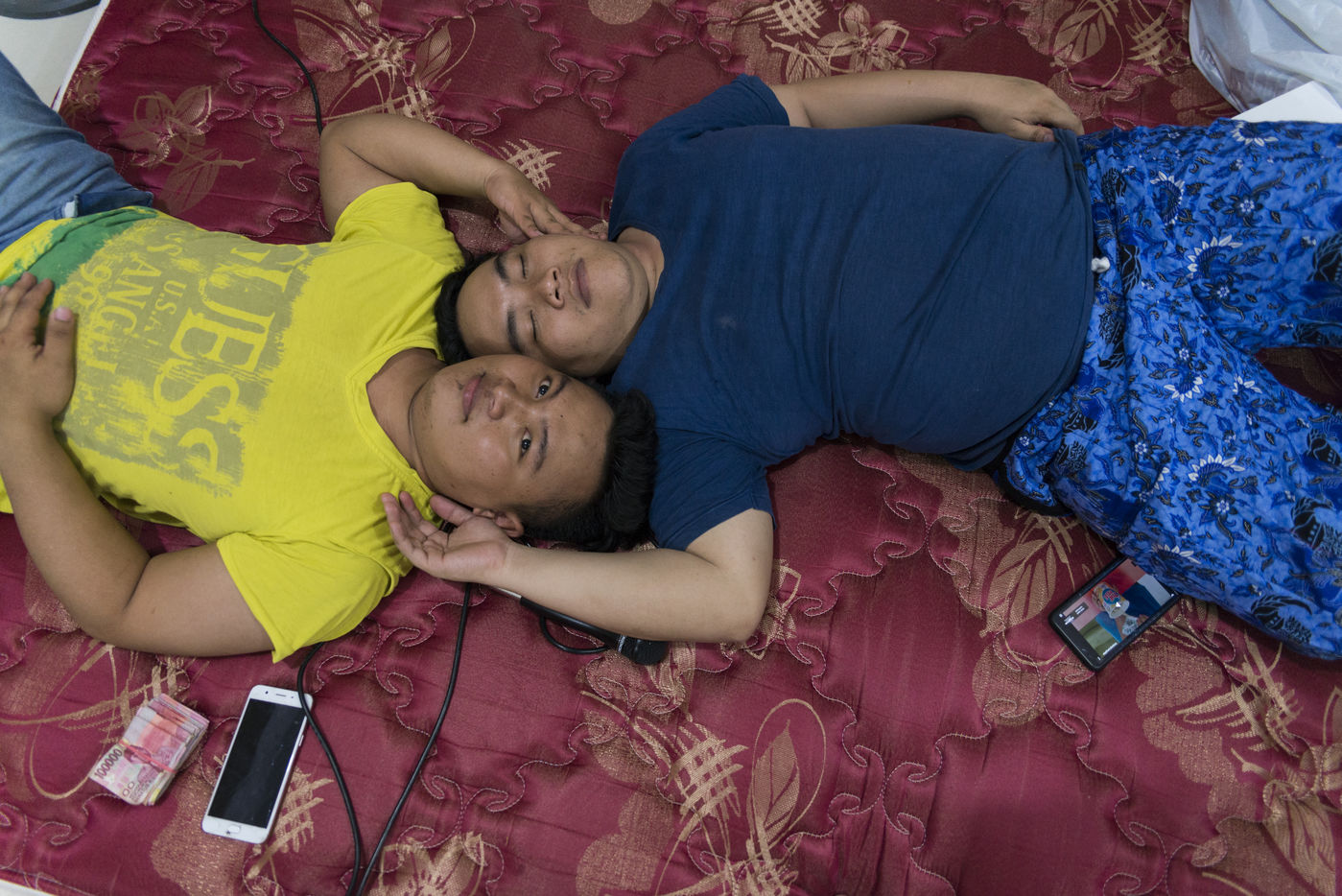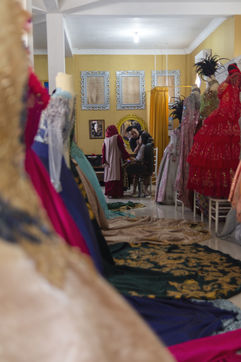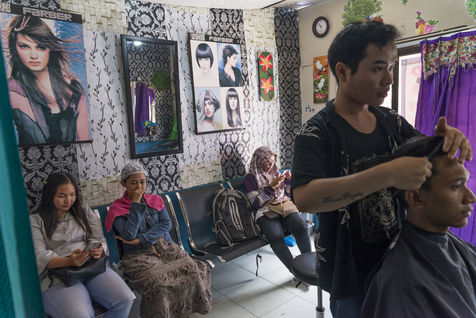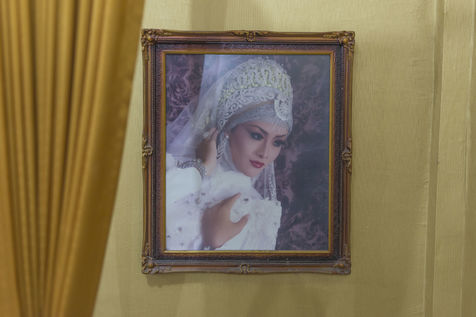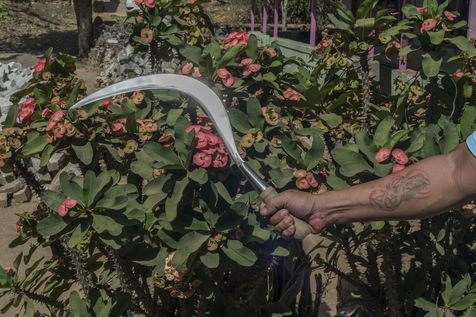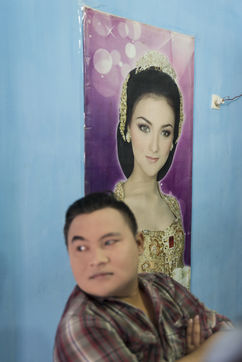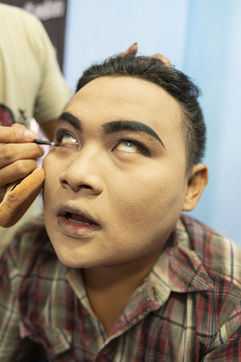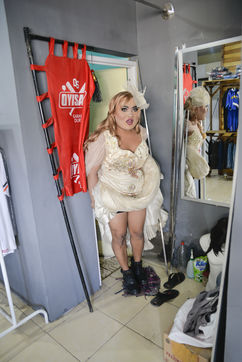INDONESIA - MASCARA
En juillet 2018, je suis invité par l'Institut Français de Surabaya pour une résidence de deux mois dans le cadre du programme Jeune Création.
Lors de l'exploration de la ville avec en tête un sujet documentaire sur les liens sociaux et culturels qu'entretiennent la métropole de Surabaya et l'île de Madura ; je rencontre par hasard un groupe d'artistes maquilleurs dans un laboratoire de photographie.
Saleh, le gérant du salon de mariage m'invite à Madura pour une séance de shooting en costumes de mariages traditionnels.
Intrigué par ce groupe au mode de vie singulier dans un environnement social davantage traditionnaliste et conservateur que celui que j'ai pu observer à Surabaya, ville portuaire et industrielle, je décide de les suivre pendant le reste de mon séjour afin de documenter leur activité.
A défaut de relater ce travail d'investigation sous la forme d'un photoreportage classique, le projet est présenté dans le registre du conte. En effet les contes, histoires et autres légendes sont particulièrement importants et présents dans la parole populaire indonésienne.
Cela me permettait également d'éviter la censure pour pouvoir exposer ce projet en Indonésie. Premier pays musulman au monde de par sa population, 300 millions d'habitants, l'homosexualité n'est même pas un sujet qu'on évoque, car pour une majorité de personnes cette orientation sexuelle n'existe pas. La communauté homosexuelle est complétement invisible et c'est pourquoi j'ai été étonné de rencontrer ce groupe qui semblait avoir trouvé un compromis pour vivre à leur façon dans une société encore très structurée par la tradition.
MASCARA
In July 2018, I was invited by the Institut Français de Surabaya for a two-month residency as part of the Jeune Création program.
While exploring the city with in mind a documentary subject on the social and cultural links between the metropolis of Surabaya and the island of Madura; I happen to meet a group of make-up artists in a photography laboratory.
Saleh, the manager of the wedding salon, invites me to Madura for a shooting session in traditional wedding costumes.
Intrigued by this group with its unique way of life in a more traditionalist and conservative social environment than the one I observed in Surabaya, a port and industrial city, I decided to follow them during the rest of my stay in order to document their activity.
Failing to report this investigative work in the form of a classic photo essay, the project is presented in the storytelling register. Indeed, tales, stories and other legends are particularly important and present in the Indonesian popular speech.
It also allowed me to avoid censorship so that I could expose this project in Indonesia. As the largest Muslim country in the world with a population of 300 million, homosexuality is not even a subject that is mentioned, because for a majority of people this sexual orientation does not exist. The homosexual community is completely invisible and that is why I was surprised to meet this group that seemed to have found a compromise to live in their own way in a society that is still very structured by tradition.
